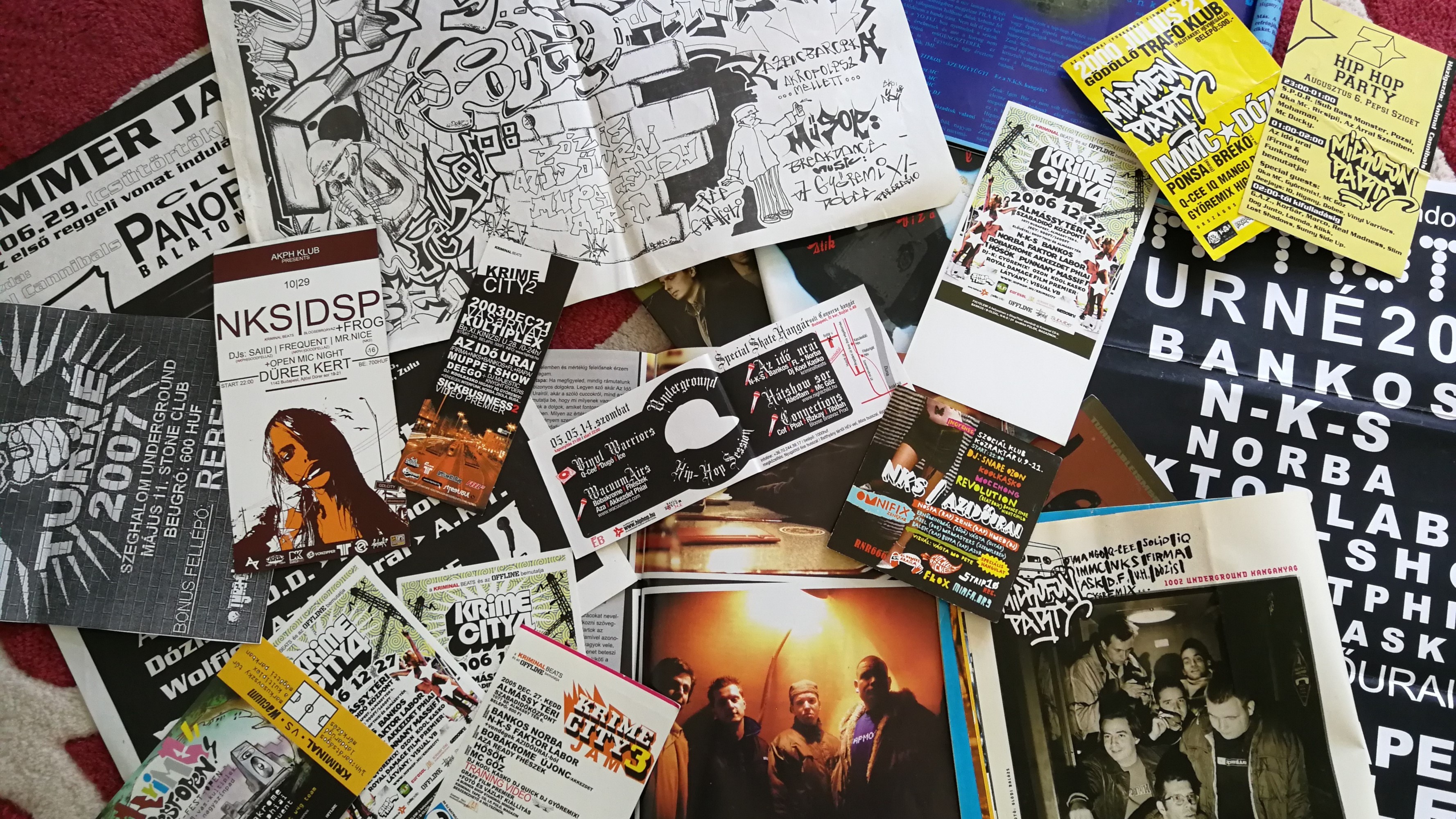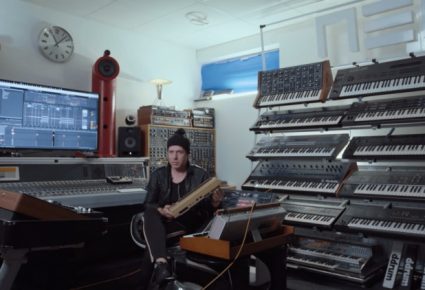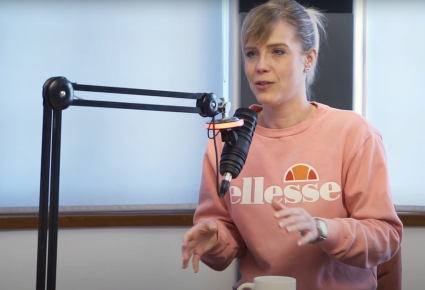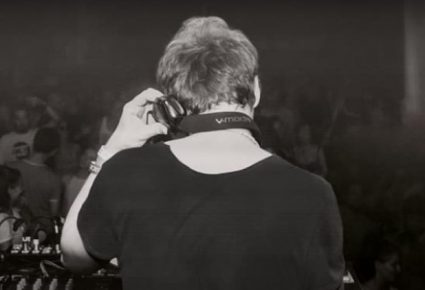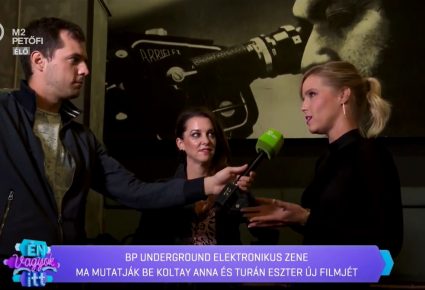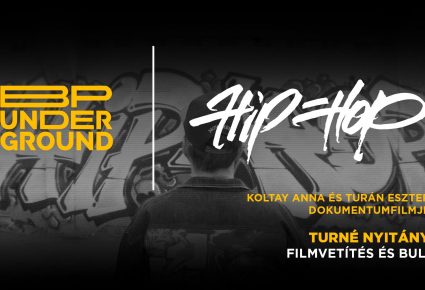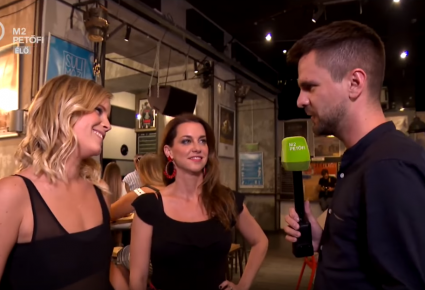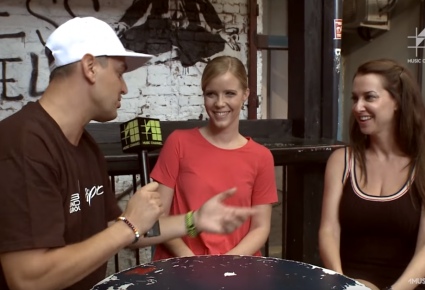BP UNDERGROUND
BP Underground is a documentary series exploring the underground youth subcultures of Budapest, Hungary in the 90s and 2000s, right after the iron curtain fell. The underground scene of Budapest and its musical subcultures are a vital and essential part of wider Hungarian culture. This series deals with how these small scenes built bigger communities and how they affected our society – and still do to this day. It uncovers how Budapest contributed to this phenomenon. What were the unwritten rules of these subcultural groups? What were their unique symbols, special uniforms, legendary venues, and heroic figures? What are the personal stories behind all of this? The directors, Anna Koltay and Esther Turan, as integral parts of these movements themselves, use their insight and access to bring untold stories to light.
Moviebar Productions the documentary is a labor of love.
Please help the crew continue with the production. In case you’d like to make a donation, feel free to send your contribution via Paypal using the button below.
NEWS
#stayathome and #watchhungarianmovies 🎬
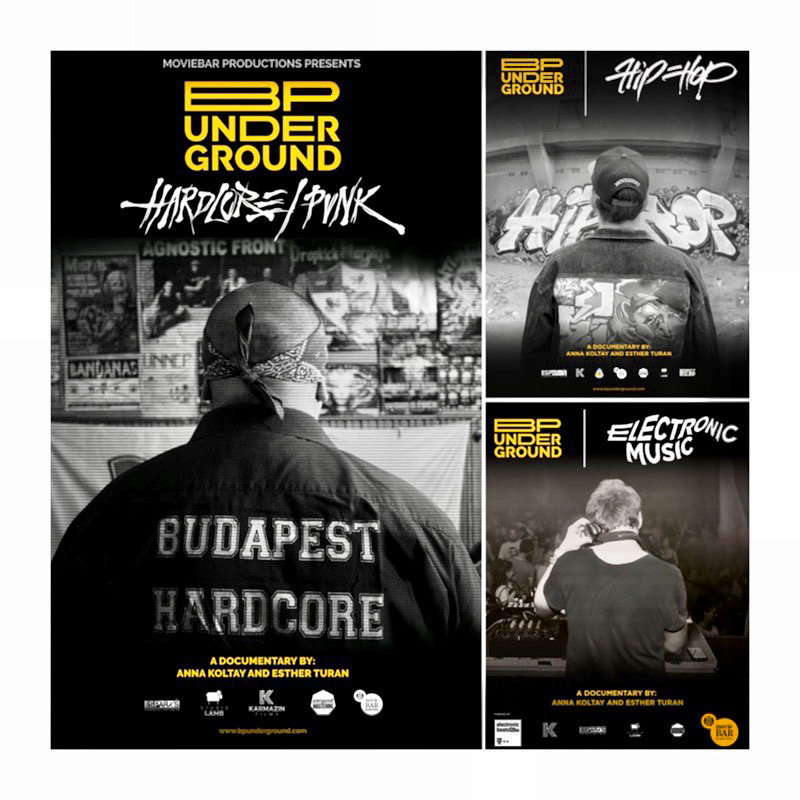
▶️ We are happy to announce that the BP Underground series is now available online with subtitles in Europe and South-America on Cinego:
Hardcore/Punk: https://cinego.hu/filmek/bp-underground-hardcore-punk
Hip Hop: https://cinego.hu/filmek/bp-underground-hip-hop
Electronic Music: https://cinego.hu/filmek/bp-underground-elektronikus-zene
All episodes of the BP Underground series are available here: https://cinego.hu/valogat…/bp-underground-teljes-valogatas
▶️ Check out the BP Underground electronic music section that is already available on Telekom Video Library on your TV or here on TV GO:
https://www.tvgo.hu/film/26225831_bp_underground_elektronikus_zene
▶️ Hip-hop episode here, for only 360 HUF:
https://hvg.hu/kultura/20200207_Jon_a_BP_Underground_a_hvg360on
WATCH
EPISODES
ELECTRONIC MUSIC
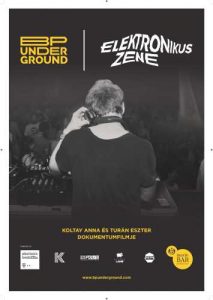
The third part of the BP Underground series is about Budapest’s underground electronic music scene. Just like the other episodes it also evokes the emergence and growth of the genre with its unique visual world and a lot of archive footage.
Among other things, it seeks to discover how Budapest as a center shaped the subculture. The BP Underground electronic music episode acts as a kind of time capsule to bring the feelings of the 90’s back from an era of unrestrained influx of western influences, when it was trendy to attend Acid Parties, everyone was into Rave and Goa Trance, and the best parties were at Katlan and Frankhegy. Copied cassette tapes were spreading like mushrooms, many were trying out imported drugs while listening to Tilos Radio and DJ Palotai was a god. How did the characteristics of each style evolve? What is the difference between jungle and drum and bass? How does one learn to love goa trance and how does one become a techno freak? The social aspect is also put into focus: Is there any socially decisive factor as to who chooses the electronic music scene? Who are the personalities still known today that used to be central figures? What do they think about their roots decades later? What does it mean for some of the musicians to rise from being unknown underground artists to achieving national fame? What is the specific Hungarian flavor of the different styles which are mainly rooted in British/American culture? What is the underground electronic music scene like today? Is it still relevant? Does it still have power and a voice in our digital world? To what extent did it remain underground?
INTERVIEWEES
Zsiga Bernáthy
Dorka Berkes “Dork”
Ambrus Deák “AMB”
Gábor Deutsch “Anorganik”
Zsolt Erdélyi “Superman”
Gábor Erdősi Statik
Balázs Fejér “Naga”
Attila Fodor “Kevin”
Farkas Fülöp
Dani Karányi
István Kántor “Isu”
Ferenc Kömlődi
László L. Laki
Manek
Balázs Mayer “Kenguru”
Mátyás Milkovics
Oleg
László Papp
Zsolt Prieger
Dávid Ráday “Raasa”
Simon Szabó
Zoltán Szabó “Lui”
Titusz
György Tímár “Jirzij”
Máté Tollner
Tom Select
András Tóth “Wegha”
Renáta Tóth “DJ Ren”
Vili Vajdai
Gábor Valdinger
Gábor Vályi “Shuriken”
Balázs Zságer
CREW
Director: Anna Koltay, Esther Turan
Producer: Esther Turan
Co-producer: Judit Romwalter, Viktória Trepper
Cinematographer: Dániel Bálint
Camera operators: Balázs Domokos, András Táborosi
B Camera operators: Dániel Kóródi, Júlia Vaszari
Production manager: Rita Jónás
Production assistants: Bence Fürst, Anita Mózes
Editor: Ágnes Grünvalszky
Sound: Áron Dóczy, Zoltán Gubinyi, Márk Gyula, Menyhért Vörös
Electricians: Richárd Endrédi, Zoltán Farkas, Viktor Gönczöl, Dávid Rácsai, Márton Tamus, Dániel Vékony
L.A. CREW:
Camera: Bobby Quillard
Sound: Doma Schrank
Post production supervisor: Mihály Környei – Studio Lamb
Sound engineer: Mihály Fejér
Mastering: Gábor Deutch – Anorganik
Colorist: Szandra Bognár
Logo: Dániel Blik
Graphic design: Balázs Markovics
Photos: Dorka Cseke

HIP-HOP
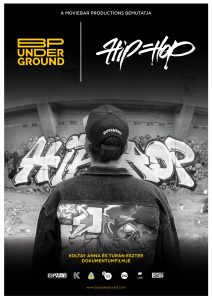
The first ever documentary film about the underground hip hop scene of Budapest, Hungary premiered in the summer of 2018.
It follows the first episode of the documentary series “BP Underground”, which had a successful premiere in July 2017, at the popular venue Toldi cinema in Budapest.
BP Underground – Hardcore/Punk was selected by numerous film festivals around Europe. Rockmaraton, a music festival, named a whole stage after the project. The directors, Anna Koltay and Esther Turan, have just completed the second, much anticipated episode of the series, focusing on the hip hop scene of Budapest. BP Underground is an homage to Budapest’s underground youth subcultures. The aim of each episode is to show how small scenes built bigger communities and how they affected our society. Not only do they explore the influential tunes, the message, legendary venues, record stores and heroic figures of this subculture, but they also reflect on today. They present an overarching view from this subculture’s humble beginnings to highlights from the golden age- the 90s through the 2000s.
The second episode of BP Underground is about the underground hip hop culture of Budapest. Similarly to the previous Hardcore/Punk episode, it builds a unique visual world including many original archive clips, documenting the birth and thriving of Hungarian hip hop. The movie will guide viewers through the much-loved talent contest, Fila Rap Jam, and historical event-series like Gimmeshot, Microfonparties and the OSG. On top of that, viewers will get an insight into sorely-missed venues like Filotorigát, Maszk klub and Kultiplex.
Besides dealing with the most important characters, from rappers to MCs and DJs, it also introduces the viewer to the Hungarian culture of graffiti, gypsy hip hop, female performers and break dancers. The upcoming episode aims to discover how the capital of Hungary, as a center, shaped the subculture, and how a cultural exchange took place between the hip hop figures from the countryside and the purveyors of Budapest hip hop.
BP Underground’s Hip Hop episode is a historical deep-dive, transporting the viewer back to the true 90’s and 2000’s feeling: an era of overflowing Western influence, when hanging around street corners, playing street basketball, Yo! MTV Raps and mixtapes bloomed like they never did before… The film also explores how social background connects to choosing a subculture – is it the strong desire of belonging somewhere? How did gangs develop, why was it a matter of life or death who belonged to which one, and why do these eternal rivalries persist?
Who are the icons who are still well-known today, who were the central figures back in the day and, decades later, what do they think about their roots? What does national fame mean to those who started out as underground musicians? How does it feel to be the member of the hip hop family, is it more than the love for music, is it an everlasting bond? How does Hungarian hip hop compare to the original style with its African-American roots, and is social criticism a fundamental thread through both? What about hip hop culture in Hungary today? Does it have the same legitimacy and power in the digital world? Where is the line between underground and mainstream, and what is the scene’s message in 2018? These are questions the directors have sought answers for.
The creators are especially grateful for those who have supported the realization of the second episode.
INTERVIEWEES
Dániel Baranyai „Eckü”
Dániel Blik
Busa Pista
Richárd Dósa „Ricsipí”
Róbert Dulna „Zenk aka Zenki Mefisto”
Krisztián Faragó „DJ Quick”
Máté Felcser „RendbenMan”
Tibor Győző Györe „DJ Györemix!”
Balázs Haász „MC Gőz”
Szabolcs Halmosi „Bobakrome”
Patrik Havas „Dj Frequent”
Patrícia Hornyák „Poisy”
András Jakab „AZA”
Márk Jávor „Dj Mango”
Kemon Wesley Thomas „MC Kemon”
László Koller „Qka MC”
Gergely Ozsváth „Mentha”
Fatima Mohamed
Timi Papp
Csaba Schmél „Artoscsaba”
Doma Schrank, Sena Dagadu
Bence Simon „Benski”
Márk Süveg „Saiid”
Márton Miklós Szabó „Miki 357”
Ádám Zsolt Vajgel „Zsolaa”
Péter Závada „Újonc”
Balázs Zsiga „Nos’ Chez aka Turan Khan”
CREW
Director: Anna Koltay, Esther Turan
Producer: Esther Turan
Co-producer: Viki Trepper, Judit Romwalter, Dóra Nedeczky
Unit manager: Nikolett Meister
Cinematographer: Dániel Bálint, Dániel Kóródi
B camera operator: Márton Géresi , Claudia Kovács, Ben Hyde
Assistant director: Balázs Markovics
Gaffer: Márton Tamus
Sound: Zoltán Gubinyi, Pál Somló, Bálint Zándoki
Editor: Antal Szvák
Mastering: Gábor Deutsch “Anorganik”
Colorist: Szandra Bognár
Post production: Studio Lamb
Mihály Környei, Zoltán Várfoki, András Kövér, Mihály Fejér, Alexandra Poremba, Zsófia Eszter Molnár
Graphics: Dániel Blik, Krisztina Jávorszki, Balázs Markovics
Production assistant: Adrienn Erdődy, Krisztina Jávorszki
HARDCORE / PUNK
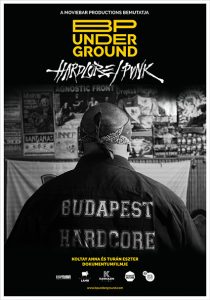
Authentic Hungarian punk is a special breed. It combined Western-European influences with the chaos, fear and rebellion of Hungary after 1989. BP Underground explores the cutting edge hardcore-punk scene of Budapest immediately following the radical regime change. Apart from creating a vivid portrait, an homage of the youth subculture and music scene in the 90s and the 2000s, the episode focuses on how historical circumstances and the city itself influenced them.
We discover the sociological and the personal background of the subculture through rich archive footage and the testimonies of iconic figures from the era, such as the legendary Tizedes, member of bands like Marina Revue, Bandanas, Tizedes meg a többiek; Jani Riger and András Madár from Böiler; Tamás Rupaszov, the founder of Trottel Records; Dávid Jancsis, a sociologist and corruption expert, member of the band Leukémia; and journalist Péter Uj. We also interviewed former members of Dawncore and Newborn, bands formed during the second wave of Hungarian hardcore: Balázs Soós, Ádám Fellegi, Zoltán Jakab, Tibor Szalkai; Attila Török of Burning Inside; Gergő Tóth of Blind Myself and Kristóf KRSA Tóth of Pannonia Allstars Ska Orchestra. András Bödecs of The Iduro talks about his connection to the subculture; Pál Somló of Shellbeach, Bálint Szollár and Tamás Kuttner of Bridge to Solace; Balázs Pándi, journalist and drummer; as well as the curator Kata Oltai all helped us to explore the era and get to the bottom of the hardcore/punk scene.
They share their personal stories and their reflections on the movement, while we dive into the historical locations and infamous venues of the time, such as Fekete Lyuk (Black Hole) in Golgota street, Total Car at the Nyugati Railway Station and Kultiplex in Kinizsi street.
We find our answers to questions like: did the chaotic time of the regime change affect the life of the subcultural? Are the key figures of the era still active today? What do they think about the movement now, decades later? How did it all affect their lives and what’s it like to look back at their roots? Where did that visceral criticism of Hungarian society come from and does their message still resonate with the generations of today?
INTERVIEWEES
András Bödecs
Ádám Fellegi
Zoltán Jakab
Dávid Jancsics
Anna Koltay
Tamás Kuttner
András Madár
Attila “Tizedes” Márton
Kata Oltai
Balázs Pándi
Tamás Rupaszov
János Riger
Balázs Soós
Pál Somló
Tibor Szalkai
Bálint Szollár
Kristóf “KRSA” Tóth
Gergő Tóth
Attila Török
Esther Turan
Péter Uj
CREW
Director: Anna Koltay, Esther Turan
Producer: Esther Turan
Co-producer: Viki Trepper, Judit Romwalter
Unit Manager: Berta Rozgonyi
Cinematographer: Daniel Balint
Mastering: Gábor Deutsch “Anorganik”
B camera operators: Domonkos Rónai, Dániel Kóródi, Márton Géresi
C camera operator: Krisztián Éder
Editor: Réka Pálfalvi
Colorist: Eszter Nagy, Szandra Bognár
Sound: Pál Somló, Bálint Zándoki
Gaffer: Marci Tamus
Camera assistant: Ádám Barta
Production Assistant: Laura Gyenge
Post production: Studio Lamb
Mihály Környei, Zoltán Várfoki, András Kövér,
Antal Szvák, Mihály Fejér, Alexandra Poremba, Zsófia Eszter Molnár
Title Soundtrack: Rendben Man – Máté Felcser
Graphic Design: Dániel Blik
Still photographer: Bernadett Fejér
CREATORS

ESTHER TURAN
Director/Producer
Esther obtained a degree in Television directing at SZFE University of Drama and Film in Budapest. After graduation, she established in 2004 Moviebar Productions, her own film production company, where she is deeply involved in every project as a creative producer from international feature films or TV series through major TVCs for well-known brands. Her most important projects are: The Reckoning (Neil Marshall, 2020), Swoon (Mans Marlind, Björn Stein, 2019) The Field Guide to Evil (Peter Strickland’s segment, 2018) Maximilian TV-series (Andreas Prochaska, 2017). The BP Underground documentary series about youth subcultures was her directorial debut, and it opened a new chapter in her life. Esther moved to Los Angeles in 2017 and opened Moviebar Productions’ LA office there. She is currently developing her TV and film ideas in LA while prepping for BP Underground’s 4th episode about the Rock scene of Budapest.

ANNA KOLTAY
Director
After receiving her MA in Communication in Hungary, she graduated from the London College UCK specialising in Media and Journalism. She has been working at the Hungarian state channel, MTV since 2012 in various positions: she’s the reporter and presenter of several programmes dealing with public and political issues, as well as factual entertainment content. Since 2016 she has been the permanent presenter and editor of the Cultural Department of the Hungarian Television. By completing BP Underground she was lucky enough to combine both of her field of expertise: the Hungarian underground scene and the documentary genre itself.
GALLERY
PRESS
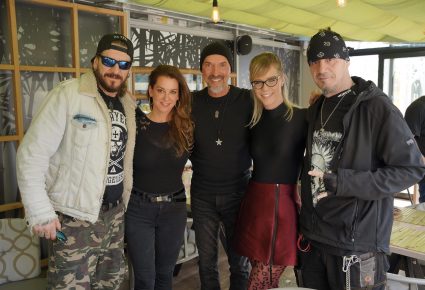
- PRESS
- May 6, 2020
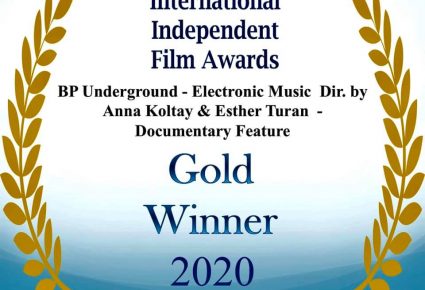
- PRESS
- March 27, 2020
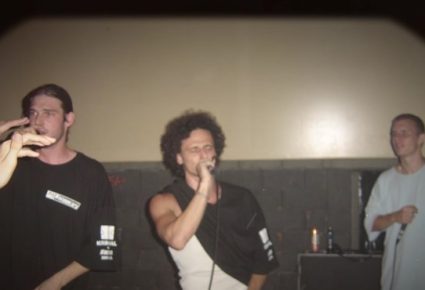
- PRESS
- February 16, 2020
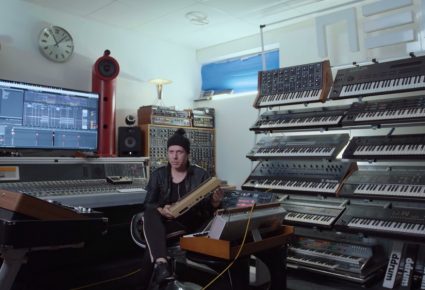
- PRESS
- February 16, 2020
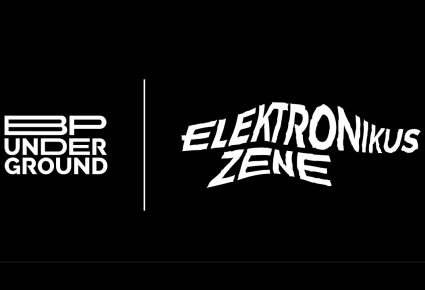
- PRESS
- February 16, 2020
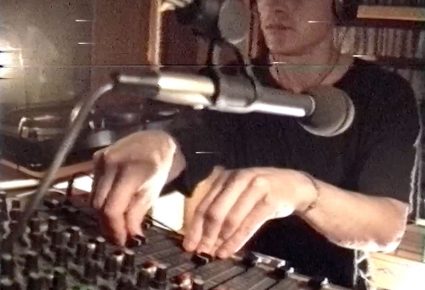
- Uncategorized
- November 4, 2019
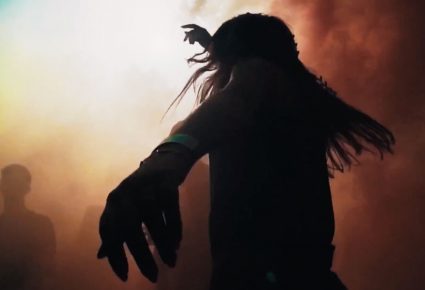
- Uncategorized
- November 4, 2019

- Uncategorized
- November 4, 2019
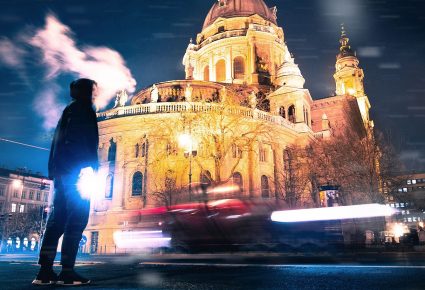
- Uncategorized
- November 4, 2019
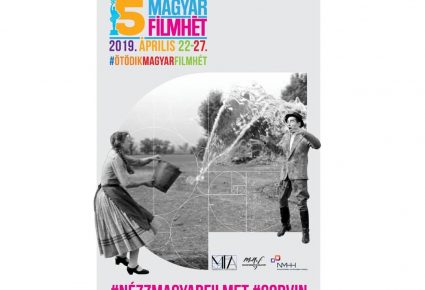
- Uncategorized
- May 10, 2019
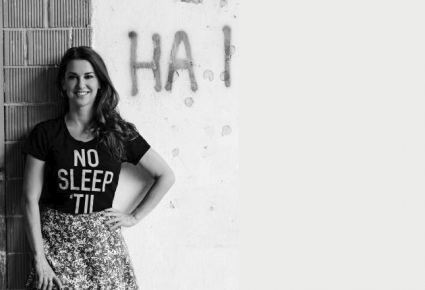
- Uncategorized
- May 10, 2019
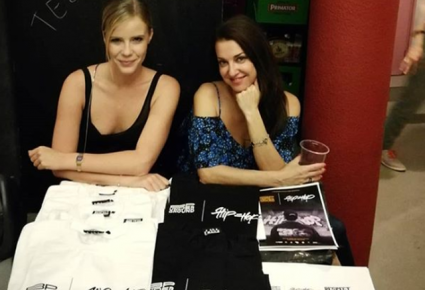
- Uncategorized
- May 9, 2019
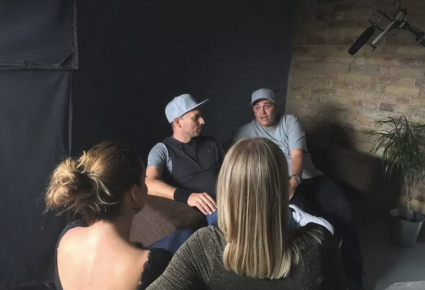
- Uncategorized
- May 9, 2019
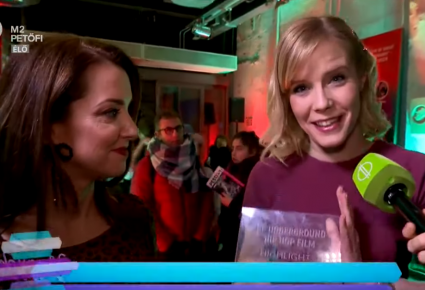
- Uncategorized
- May 9, 2019

- Uncategorized
- May 7, 2019

- Uncategorized
- May 7, 2019
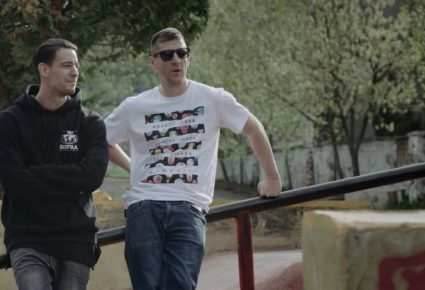
- PRESS
- December 6, 2018
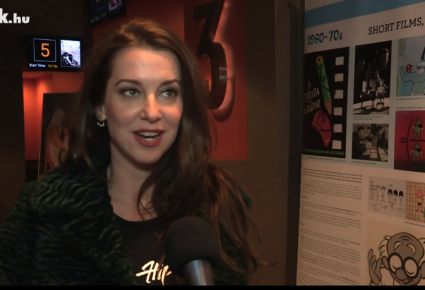
- PRESS
- November 28, 2018

- PRESS
- November 27, 2018
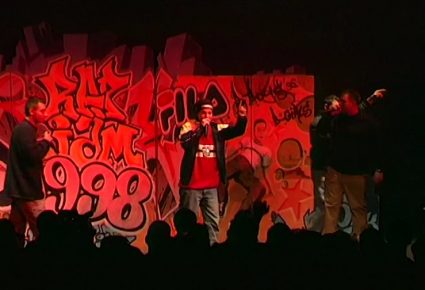
- Uncategorized
- November 27, 2018
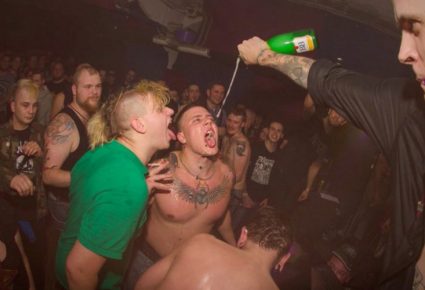
- PRESS
- November 5, 2018
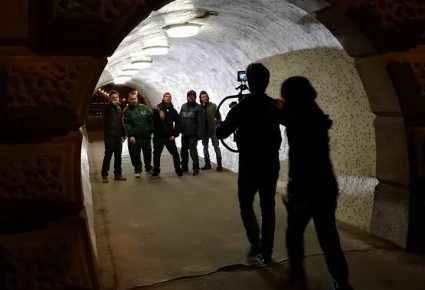
- PRESS
- November 5, 2018

- PRESS
- October 8, 2018
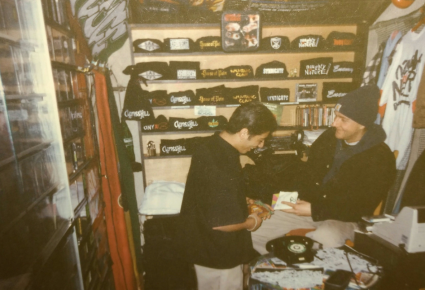
- PRESS
- October 8, 2018

- PRESS
- October 8, 2018

- PRESS
- October 8, 2018
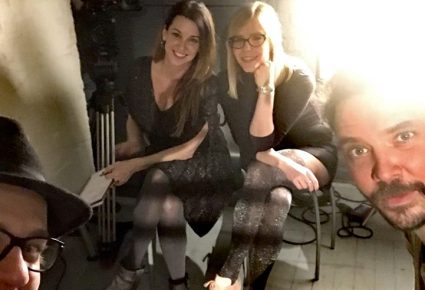
- PRESS
- October 8, 2018
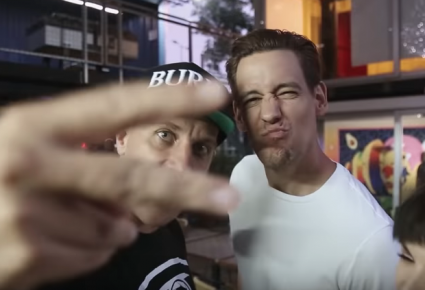
- PRESS
- July 31, 2018
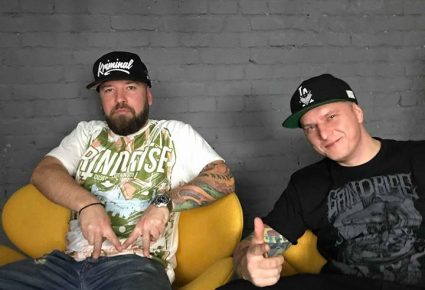
- PRESS
- April 26, 2018
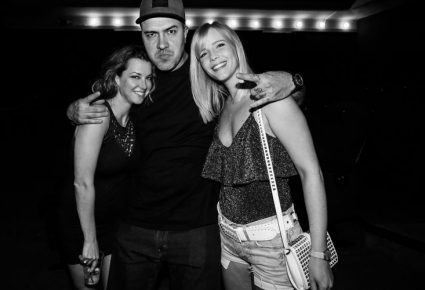
- PRESS
- February 4, 2018
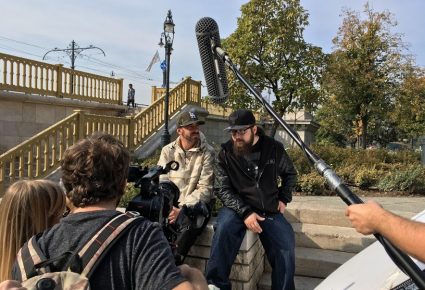
- PRESS
- October 30, 2017
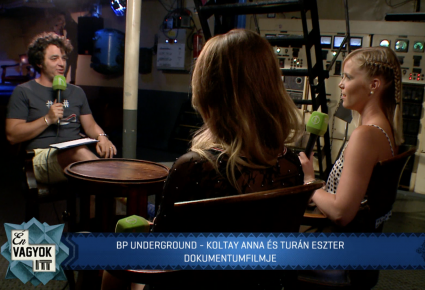
- PRESS
- October 16, 2017
WRITE TO US
CONTACT
Moviebar Productions
Address: Alsó Zöldmáli út 15. 1025 Budapest, HUNGARY
Phone: +36 1 792 6715
E-mail: info@movie-bar.net
Web: www.movie-bar.net

